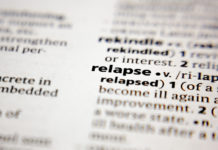How Well Do Neuroleptics Work?
A recent paper published in Schizophrenia Bulletin reported on a meta-analysis of antipsychotic drugs which found that a significant number of people do not experience a remission of psychotic symptoms. The evidence base suggests that it is time for us to reappraise the effectiveness of these drugs and shift our practice patterns accordingly.
“Jury Smacks J&J with $70M in Damages in Latest Risperdal Breast Case”
Fierce Pharma reports: "Johnson & Johnson ($JNJ) is fighting more than 1,500 legal claims that its antipsychotic Risperdal triggered breast development in boys, and...
“They Need to be Held Accountable”
Psychiatrists at the University of Minnesota forced a young man into a profitable study of antipsychotic drugs over the objections of his mother, who desperately warned that his condition was deteriorating and that he was in danger of killing himself. On May 8, 2004, Mary Weiss' only son, Dan Markingson, committed suicide. A petition to the governor of Minnesota now asks for an investigation.
On “Schizophrenia”
The first time I heard someone labeled schizophrenic I was about 10 years old. A man was talking to himself and appeared to be house-less and perhaps on drugs. My mom, a very good teacher and explainer of things to me, said, “That man is schizophrenic. That means he can't tell the difference between what's inside of himself and what's outside.” In retrospect this seems like a relatively sophisticated and sensitive explanation; Falling in love, hearing music that enters our heart, having children/giving birth, connecting powerfully with another person in a meeting of the minds, feeling empathy, deeply caring about something, experiencing oneness with nature, are all examples of times when the line between inner and outer reality is blurred.
J&J Gets $257 Million Risperdal Verdict Thrown Out in Louisiana
A Louisiana appeals court has thrown out a $257 million verdict which held Johnson & Johnson liable for deceptive practices in marketing its antipsychotic...
What Does ‘Relapse’ Mean? Definitions Used in Antipsychotic Trials Are Unclear
Antipsychotic drugs are prescribed on the basis of trials that demonstrate a higher rate of ‘relapse’ in people who are withdrawn from these drugs compared to those who continue to take them. Yet, incredibly, there is no consensus about what ‘relapse’ means in this situation.
J&J Alleged To Hide Evidence That Risperdal Grows Boys’ Breasts
"A drug that was never meant for kids was illegally marketed to kids," said a lawyer for the plaintiff in opening remarks for the...
J&J CEO Avoids Testimony in Philadelphia Risperdal Case
Chief executive Alex Gorsky was once proud enough of Risperdal to put its sales numbers on his resume, according to the Philadelphia Inquirer today,...
Slew of New Studies Spot Links Between Psychiatric Medications and Bone Loss, Fractures
Four different studies conducted in different ways examining different groups have linked use of certain psychiatric drugs to bone fracture risks and negative impacts on human bone development.
Whistleblower Files Lawsuit Against AstraZeneca
From the Chicago Tribune: Former drug sales representative Allison Zayas became a whistleblower against her old company, AstraZeneca, after learning that a combination of Seroquel...
Medical Malpractice Verdict Seen as Powerful Message
From PR Newswire: On May 16th, a $2 million verdict was issued in favor of Stanley and Marianne Truskie, whose son died from toxic levels...
Department of Defense Apologizes for Antipsychotic-Related Deaths
The Army Times reports on the Department of Defense's crackdown on off-label antipsychotics in the context of research showing a strong link between antipsychotics,...
“Do We Have to Wait Until He Kills Himself or Someone Else Before Anyone...
In the "agreement for corrective action" against CAFE study coordinator Jean Kenney last week, the Board of Social Work cited Kenney's failure to respond to "alarming voicemail messages" from family members of Dan Markingson. Presumably, the Board is referring to a message left by his mother, Mary Weiss, which warned, "Do we have to wait until he kills himself or someone else before anyone else does anything?" The failure of Kenney and Stephen Olson to take the warnings of Mary Weiss seriously has been one of the most disturbing aspects of this case. In a deposition for the lawsuit filed by Weiss, Kenney was questioned about her response. Here is an excerpt. (The initial questions come from Gale Pearson, an attorney for Mary Weiss.)
University of Minnesota Ends Recruiting of Research Subjects on Involuntarily Holds
The University of Minnesota announced a change to its research ethics policies this month after coming under criticism “following the recruitment of a schizophrenia...
Consumer Reports Recommends Against Antipsychotics for Depression
Consumer Reports recommends against antipsychotic "augmentation therapy" for depression. The consumer watchdog magazine finds that the unproven efficacy, harmful side effects, availability of alternatives,...
Discontinuing Psychotropics Reduces Falls in Elderly
Australian researchers look at the literature on the effect of psychotropics on falls in the elderly; largest effect of any randomized trial was achieved...
J&J Settles Texas Medicaid Lawsuit for $158 Million
Johnson & Johnson has agreed to settle Texas' lawsuit for the company's fraudulent marketing of Risperdal. The is the first time J&J has settled...
Utah Supreme Court Allows Lawsuit for Psychotropic-Induced Murder
Ruling that health care providers, while important, "are not entitled to an elevated status in tort law that would categorically immunize them from liability...
High Levels of Antipsychotics in Shooter
Denis Bay had high levels of antipsychotics and mood stabilizers in his blood when he shot his wife and two daughters. 911 dispatchers described...
Training Nursing Home Staff in Understanding Needs Can Reduce Antipsychotic Use
A new study published in JAMA Internal Medicine, the largest study of its kind, has shown it is possible to reduce the use of antipsychotics in nursing homes, by engaging their staff in a training program designed to target residents’ strengths and their unmet needs.
Researcher Acknowledges His Mistakes in Understanding Schizophrenia
Sir Robin Murray, a professor at the Institute of Psychiatry, Psychology, and Neuroscience in London, states that he ignored social factors that contribute to ‘schizophrenia’ for too long. He also reports that he neglected the negative effects antipsychotic medication has on the brain.
Prenatal Antipsychotic Exposure Causes Neuromotor Deficits
Researchers studying 309 6-month-olds at Emory University's Infant Development Laboratory found that infants prenatally exposed to antipsychotics showed significantly lower scores on a standardized...
Long-Term Social Supports Needed After Onset of Psychosis
New data on the effects of social support after early onset of psychosis suggests that patients with intense social support function better than those without such help, but than once supports are removed the effects diminish.















